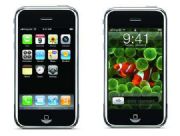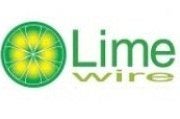1.
Analyst: New iPhone to Have More Bling, But Not Much
More bling is expected from the next iteration of Apple's popular iPhone, but not the type that will stir a revolution.
That's the assessment in a recent research note by industry analyst Peter Misek of Jefferies & Co. that was picked up by several news organizations.
The proof is in the name. Misek said the name of the handset is expected to be the iPhone 4S, instead of iPhone 5.
Some of the incremental improvements, according to Misek, include Sprint and T-Mobile selling the device, better cameras from Sony and HSPA+ support. He expects Apple to put the A5 chip from the iPad 2 tablet into the new iPhone, giving it dual-core processing power.
The research note doesn't mention anything about NFC capabilities in the new iPhone, which were widely speculated earlier this year. Such short-range wireless connectivity allows data and images to easily be transmitted between two devices such as a cell phone and a computer by touching one to the other.
At least more carriers are set to have the new iPhone this year. That would mean Sprint and T-Mobile in the U.S. joining AT&T and Verizon. A look inside the Verizon iPhone revealed its radio chip could handle radio frequencies from all top four U.S. carriers.
But if you were keeping your hopes up for a 4G LTE iPhone though, Misek said Apple is not happy enough with the technology to include it in the new model expected in the next few months. Instead, it will feature HSPA+, which is what AT&T calls 4G. This could be explained by recent reviews of 4G Android phones, where abysmal battery life was noted--a trade-off Apple probably wants to avoid.
2.
LimeWire Agrees to Pay $105 Million to Record Labels
LimeWire has agreed to pay record labels US$105 million to settle a lawsuit alleging that the file-sharing service allowed its users to infringe copyright, the Recording Industry Association of America (RIAA) announced late Thursday.
Thirteen record labels, in a lawsuit filed in August 2006, alleged that LimeWire was "devoted essentially to the Internet piracy" of music. Judge Kimba Wood of the U.S. District Court for the Southern District of New York ordered LimeWire to stop distributing its peer-to-peer software in October of last year.
The out-of-court settlement came after a jury trial that focused on damages to be paid by LimeWire and CEO Mark Gorton began in New York last week.
"We are pleased to have reached a large monetary settlement following the court's finding both LimeWire and its founder Mark Gorton personally liable for copyright infringement," RIAA Chairman and CEO Mitch Bainwol said in a statement. "As the court heard during the last two weeks, LimeWire wreaked enormous damage on the music community, helping contribute to thousands of lost jobs and fewer opportunities for aspiring artists."
Bainwol called the settlement a "reason for celebration by the entire music community."
The settlement reinforces the U.S. Supreme Court's ruling against P2P vendor Grokster in 2005, Bainwol added. The court ruled that Grokster and StreamCast Networks can be held liable for copyright infringement committed by users.
The settlement and the Grokster case show that "designing and operating services to profit from the theft of the world's greatest music comes with a stiff price," Bainwol said.
LimeWire's lawyer, Joseph Baio of Willkie Farr & Gallagher in New York, wasn't immediately available to comment on the settlement.
LimeWire.com's home page has a note about the injunction issued by Wood. "We further remind you that the unauthorized uploading and downloading of copyrighted works is illegal," the note said.
3.
Guinness Awards Gaming Records to iPhone 4, App Store
The Guinness Book of World Records has bestowed the honor of fastest-growing gaming system uponApple's iPhone 4, as well as noting that the App Store itself and several games in it also have set records.
An estimated 1.5 million iPhone 4s were sold on launch day, far eclipsing any other gaming system. Guinness noted that the PlayStation Portable only sold 200,000 units in its first day, and it was a full week until the Nintendo DS pushed 500,000 consoles out the door.
"The release of the iPhone has not just changed the mobile industry, but the video game world too," Guinness' gaming editor Gaz Deaves says in a statement. The organization also noted that Apple's App Store holds the record for the largest downloadable video game store with 37,362 titles available.
Guinness did not provide numbers from the Android Market for comparison purposes, but noted the App Store was well ahead of other competitors including Xbox Live Arcade (around 1300) and Wii's Virtual Console service at 576.
Angry Birds is also receiving honors for being the "Top Paid-For App Store Game in Most Countries." The title is the top paid download in 67 countries on the App Store with an estimated 6.5 million paid downloads.
Other records for iOS games include Tap Tap Revenge for the most popular App Store game in history with 15 million downloads, and Plants vs. Zombies set two records in the strategy category. It was the highest grossing launch with $1 million in revenue for developer PopCap in the first nine days, as well as the fastest selling with 300,000 downloads in that same period.
4.
On the Internet, Trust No One
On the Internet, trust no one. Or at least, as President Reagan famously said, "Trust, but verify." In particular, whenever an unusual and unexpected message appears on your computer, be suspicious of its authenticity.
The most recent example supporting this advice is the MAC Defender Trojan horse. As previously covered here at Macworld, after clicking a link to a site that comes up in a Google search, a message may pop up claiming that your computer is "infected." At the same time, a ZIP file is downloaded to your Mac. If you're using Safari, the file is automatically launched, unless you disabled the option to 'Open "safe" files after downloading' in Safari's Preferences. The downloaded file turns out to be an installer for a supposed piece of software named MAC Defender. You are asked to purchase this software so as to fix the "infection."
It's all a scam. There is no actual program to install. The goal of the creators of this con is simply to get your money and credit card number.
After reports of the scam began circulating on the Web, the package was modified with a new name: MAC Security. It's just as phony.
This is merely the latest in a series of similar scams. For example, as reported in an Apple Support Communities thread posted in January, Skype users may receive a false alert claiming: "ATTENTION! Security Center has detected malware on your computer."
How can you tell if these warnings are phony? What should you do if and when you receive one?
For starters, assume that all such unfamiliar messages are scams. Better safe than sorry. There are no legitimate error messages in Mac OS X or Safari (or any other Internet-connected software that I have ever used) that directly link to unrelated third-party sites. If the third-party site requests any personal information, from an email address to a credit card number, be even more suspicious (if that's possible).
Don't click on any links included in such messages. Don't install any software that accompanies the message. Don't provide any personal information at all. In fact, don't do anything that the message requests that you do. Just ignore it and discard it.
Similarly, beware of phishing scams in emails that you receive. If you get an email, even from a website that you frequent (such as Facebook or PayPal), that includes a link to login to the site: beware. It could be a fake message taking you to a phony site--all designed to trick you into giving scammers your username, password, and/or credit card number.
As a rule, whenever I receive any such messages from known vendors, if I think there is any chance that the message is legitimate, I separately log in to the site, ignoring the provided link. If I truly need to perform the requested action, I should be prompted to do so.
The same rule applies to e-mail attachments. Be especially suspicious of unsolicited attachments from unknown senders. In this regard, Microsoft recently posted Security Bulletin MS11-036, describing a vulnerability in Microsoft PowerPoint that "could allow remote code execution if a user opens a specially crafted PowerPoint file. An attacker... could gain the same user rights as the logged-on user." You could be at risk by opening a suspect PowerPoint file that you received in an e-mail. On a Mac, the danger is limited to Microsoft Office 2004 and 2008 (not the latest 2011 version). An update to patch the security hole is in the works, and should be available soon.
This is the world we live in--where being skeptical typically pays off and being trusting too often leads to disaster. Still, I suppose it's always been that way, at least as far back as when P.T. Barnum ispurported to have said "There's a sucker born every minute." The technology keeps getting updated; the dangers stay the same.
To read this more closly go to: http://www.coolinfographics.com/







No comments:
Post a Comment